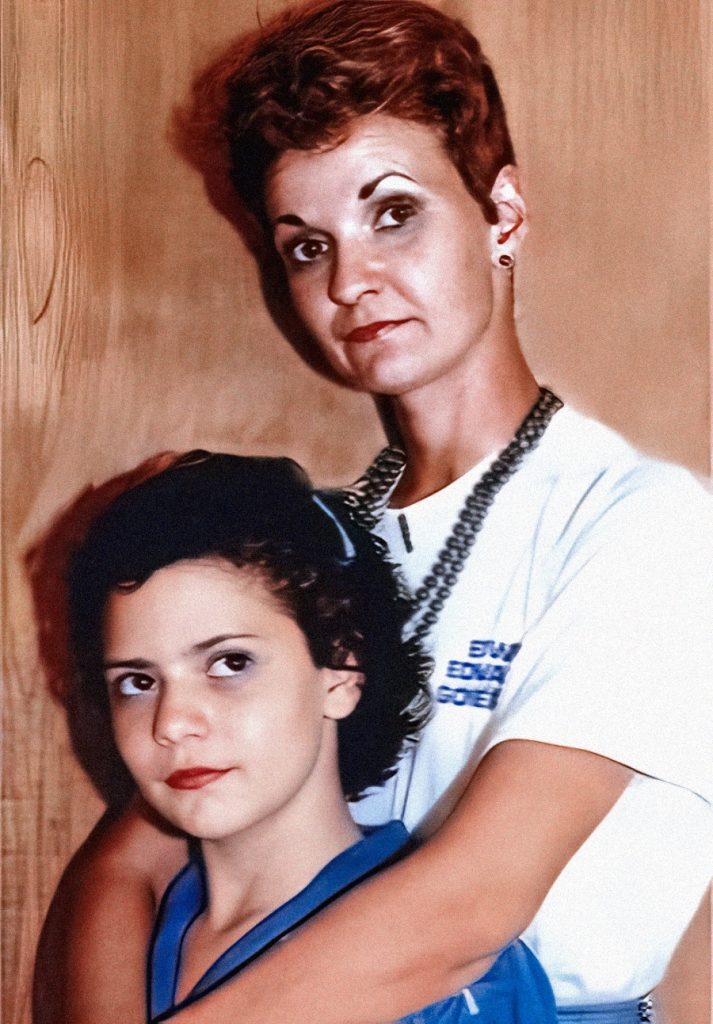Caller confesses to murdering Governor’s mistress
PART TWO OF THREE
Among the leads in the East Baton Rouge Parish Sheriff’s Office file on Rebecca Pauline Gary’s 1988 disappearance, the most intriguing is the telephone confession of a man who claimed former Louisiana Governor Edwin Washington Edwards hired him to kill her.
Edwin Edwards, whom opponents labeled a womanizer, a gambler, and a puppet of organized crime, served as the United States representative for Louisiana’s 7th congressional district from 1965 to 1972 and as governor of the state for four terms (1972 to 1980, 1984 to 1988, and 1992 to 1996). He served 16 years, 5,784 days, in gubernatorial office, the sixth-longest term in post-Constitutional American history and double the tenure of any other Louisiana chief executive.
In 2001, after a jury found Edwards guilty of seventeen criminal counts, including racketeering, extortion, money laundering, deception by mail, and wire fraud, a judge sentenced him to ten years in federal prison. He remained there until a parole board released him to a Denham Springs halfway house in January 2011.
From prison in 2004, the 86-year-old Edwards divorced his second wife, 40-year-old Candy Picou and married Trina Grimes, a 30-year-old prison pen pal. By 2013, Trina starred with Edwards in a television reality show called The Governor’s Wife and gave birth to their only child, Eli Wallace Edwards.
In July 2021, a 93-year-old Edwards placed himself under hospice care one week after the East Baton Rouge Parish Sheriff’s Office began processing their files on “Becky” Gary for public release. Becky’s family, who says Becky was Edwards’ on-and-off mistress for fifteen years, received the files in Shreveport days before Edwards died of “respiratory complications” on July 12, 2021.
Edwards’ family buried him at Rest Haven Memorial Gardens in south Baton Rouge, and ten weeks later, his widow had him exhumed, cremated, and placed on a nightstand near her bed. Her son, eight-year-old Eli, was Edwin Edwards’ only heir.
Leo Honeycutt, the governor’s biographer, told reporters the brevity of Edwards’ hand-written will surprised him. “He was very verbose when it came to his legal situation and the way that he talked legally, so it’s interesting that at the last part of his life that he would write out in four paragraphs,” the former newscaster told WBRZ-TV.
Today, Edwards’ disabled 70-year-old daughter, Victoria, continues challenging those four paragraphs in court.
“Becky was seventeen the first time she mentioned Edwin Edwards,” Rebecca Pauline Gary’s sister Joyce Gary Lee told me last week. “But she dated Shreveport’s elite before her sixteenth birthday. She would come home with evening gowns we could never afford and attended the most lavish events in town. We’d go shopping, and high-profile businessmen stopped her in stores to talk. It was crazy.”

“I only half believed her about Edwin Edwards for a long time. Then, one evening,” Joyce said. “She came home with a new gown and handed me another. She said to get dressed. We were going to meet the governor.”
“That night, we went to this swanky re-election gala in Shreveport, a thousand-dollar-a-plate fund-raiser. They just checked our name off a list, and we walked in,” Joyce remembered. “It shocked me all the people who knew Becky. The governor’s bodyguards called her by name and joked like they knew her for years.”
“After Edwards died,” Joyce said. “Detectives came to Shreveport from Baton Rouge. They wanted to know what we knew about Becky’s disappearance. They claimed to have talked to Edwards before he died. He denied seeing her, they said. He supposedly gave them a stack of letters she wrote and described her as a crazed groupie, but there are no letters or anything like that in her police file.”
On May 27, 2022, Becky would have turned sixty-six.
However, Sunday morning, December 18, 1988, she placed her 12-year-old daughter on a Greyhound bus in Baton Rouge bound for Shreveport, and Jamie Elysha Gary never saw her mother again.
“Mom volunteered and worked the campaigns every time Edwards ran,” 45-year-old Jamie Elysha Williams told me this week. “The year before we lost her, we lived near the state capitol, and I remember her wearing campaign shirts and answering the phones at the headquarters.”

In 1987, Edwards ran against Buddy Roemer but bowed out before the run-off. Becky vanished the following year and had been missing three years when Edwards defeated David Duke to win his fourth term in 1991.
Crimestoppers began in 1976, but there were no nationally accessible anonymous tip lines until the early 90s, one year after Becky disappeared from her apartment on Airline Highway in Baton Rouge. However, an organization not directly related to crime reporting did host a nationwide toll-free number, and they welcomed anonymous tips.
In the 1980s, a New York-based homeless shelter called Covenant House launched a nationwide 24-hour-a-day crisis hotline called Nine-line. According to Patricia Connors, a former director of Nine-line, this phone number brought families together, connected abused children with special help agencies, and gave runaway children and abused spouses someone who would listen.
Nine-line, staffed around the clock with twenty-five professional counselors and 130 volunteers, received over 3,000 calls a day in 1989. According to records from the East Baton Rouge Parish Sheriff’s Office, one of those calls came from a Baton Rouge man confessing to the murder of Rebecca Pauline Gary.
According to a hand-written police report, a caller to the hotline “allegedly killed Rebecca Pauline Gary and left her in the trunk of a brown Ford LTD with a license plate number, beginning with 641X. In addition to admitting that he killed her, [the anonymous caller] added that Edwin Edwards (ex-governor) paid for the hit.”
The report continued, “The caller knew her date of birth and full name. The caller also gave the following directions to where he parked the vehicle behind a yellow school bus. Take Capitol Lake Drive to the service road, turn right, and go two blocks. This [route] would place the vehicle in or near the east end of Spanish Town.”
According to the report, Paul Ferguson, the phone counselor from Nine-line, asked the officer to confirm that Rebecca Pauline Gary had been missing since December 1988. The officer on the phone confirmed she had.
Promising to investigate, the officer hung up the phone and sent a patrol unit to follow the directions from Paul’s anonymous caller. The responding officers found the yellow school bus but no brown LTD.
The East Baton Rouge Parish Sheriff’s Office next contacted the courts in New York and Louisiana to subpoena the telephone records of Covenant House and the Louisiana licenses of all vehicles with partial plates, beginning with “641X.”
